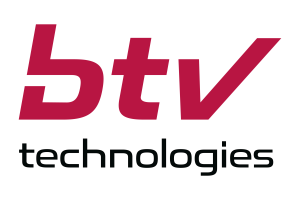Dr. Reinhard Ploss, Infineon
»If you take a breather – you have already lost!«
Fortsetzung des Artikels von Teil 2
Aurix 3 generation
Can Infineon learn from its own in-fab applications?
There we can experience Industry 4.0 and Predictive Maintenance for ourselves at first hand. In manufacturing, we have accumulated a great deal of our own know-how and are constantly refining it in order to continuously improve quality and efficiency. By the way, this is also a prerequisite for our zero-defect strategies. We can then apply the methods based on analysis and AI in other areas, such as sales and marketing. We are now beginning to use them in R&D and for in-house logistics.
In many cases one does not even know what can be done with all the data and which new processes can be applied.
I see the whole question of AI as a large area of research. As a company, we are embarking on an expedition to find out what is feasible and sensible in this environment. We have launched a very interesting initiative within the company specifically for this purpose. Employees are encouraged to participate, share their knowledge and develop new ideas - driven by the respective application. We have allocated a separate budget for this, so that, for example, models can be calculated and some can be tested. And all this without having to formulate a concrete business case. The nice thing about it is that it is really fun for the employees and leads to new perspectives and added value.
Some would say that people enjoy eliminating their own jobs.
Not at all! These activities should be seen in contrast to the many negative scenarios that are often brought into play revolving around AI, starting with AI as a job killer. Our employees want to actively contribute. They know one thing: If you take a breather in our industry, you have already lost. This culture of fearlessness towards new developments is probably more pronounced in a technically oriented company under high pressure to innovate than in other industries. In any case, our employees tend to be unafraid and think in terms of opportunities.
Has anything concrete emerged from this yet?
At the end of September, the Enquete Commission on Artificial Intelligence set up by the German Bundestag was constituted. Prof. Wolfgang Ecker was appointed as Infineon’s representative expert. He has been actively involved in our internal AI initiative. This again shows that politicians are today very interested in tackling such issues and making recommendations. It is a great recognition for us and we are very pleased that Infineon is being consulted in this field and is represented here by an expert.
Will Infineon develop its own AI devices?
We will certainly not be among the dominant players among the chip manufacturers, but we want to successively expand our controller family with AI functions. The Aurix 2 is already equipped with specific features, such as the ability to process radar data. In the up-coming Aurix 3 generation more will, of course, be added.
You have discussed your participation in the HPC project. Do you consider there to be a general need for political initiatives in the field of AI?
A high level of investment is called for in the entire AI environment. In my opinion, this makes it imperative that Europe as a whole shows initiative. It needs political will. Because what is needed here goes beyond what a company alone can decide and afford.
- »If you take a breather – you have already lost!«
- »We have to be the ones who understand end-systems in detail«
- Aurix 3 generation
- »We need people who can think in superordinate contexts«







